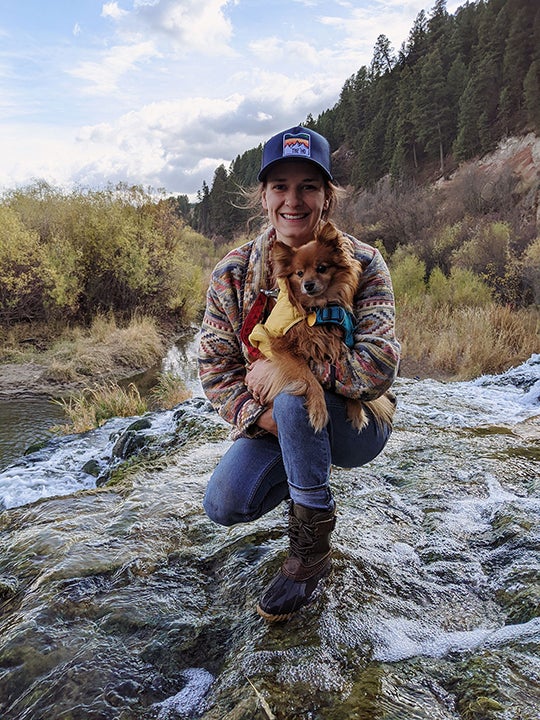Social work isn’t what you might think, and the students pursuing social work degrees through Boise State’s School of Social Work are as different as their passions and goals for their lives and futures. That’s a very good thing – the challenges they face in their internships, graduate assistantships and coursework show just how needed their perspectives and skills are.
Here’s a sneak peek at the “social workers” of the future (spoiler alert: The term hardly captures the range of what they’re interested in – and what they might accomplish.)
Mimi Fetzer
First-year master’s student

Mimi Fetzer arrived at Boise State by way of Idaho State University in Pocatello and Meridian, where she had studied dietetics. Over time, she observed that while her chosen field focused on the achievement of wellness by way of food, mental and other factors, everything from housing to abuse to body image issues, effected the well-being of the people she saw.
“In the back of my mind, I knew these clients needed more, and I was coming to a sword fight with – a head of broccoli.”
Her work in the government sector with several agencies further convinced her of the need for additional education so as to further help people. She remembers thinking, “‘There has to be more that I can do to help.”
“I wanted to do more, and more that was actually impactful,” Fetzer said. “What I started realizing was that there was this degree of social work that looks at clients more holistically.”
Fetzer jumped in. Having been told Boise State’s was “a phenomenal program,” and convinced that many faculty members had world views and perspectives that aligned with hers, she left her job and committed to the program full time.
“It’s been really awesome,” she said.
Fetzer has appreciated the latitude within the program, learning of faculty members’ own experiences in the field and in their research and the freedom to explore.
“Social workers really do it all,” she notes. “It leaves a lot of room for us to do things holistically.”
Fetzer spends hours each week at her internship with Hand in Hand Behavioral Health, a clinic that provides community-based rehabilitation services, case management and therapy. She is able to help with the considerable documentation that federal reimbursement requires, assessing client needs and designing settings in which children and adults can safely practice their social and behavioral skills.
And while she thinks that she’ll be doing one-on-one or group therapy in the future, she wants to optimize her education and likes the idea of getting her PhD, for which she knows she will need both real-world experience and research skills. Which is where her assistantship comes in.
Fetzer has been able to serve as a graduate assistant, helping Assistant Professor James Beauchemin with a variety of his research projects, including ongoing assessment of wellness in graduate students and the tools used to do that. She’s also able to see what the life of a researcher and academic is like at close range.
“I love it,” she said. “It helps me make sense of what we’re learning about in school.”